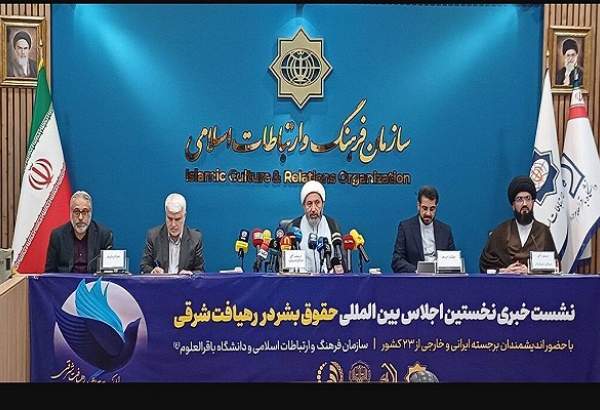Int’l Conference Seeks Fresh Human Rights Framework Amid Failures in Gaza

This is according to Hojat-ol-Islam Mohammad Mehdi Imanipour, head of the Islamic Culture and Relations Organization (ICRO), who made the statements in a press conference in Tehran on Tuesday.
The press conference served as a prelude to the upcoming International Conference on Human Rights in the Eastern Perspective which is scheduled to be held on April 27 and run for three days.
“The global community's performance in the field of human rights has not been acceptable and reflects a major failure of humanity in this regard,” Imanipour said.
“The genocide in Gaza compels us to consider a new set of principles and a new system for human rights,” he added as 18 months of brutal Israeli aggression on the besieged Palestinian territory has killed more than 51,000 people, mostly women and children.
“Iran has conducted valuable research in the area of human rights and seeks to help shape a new order based on constructive dialogue,” said ICRO chief, adding, “We are pursuing a global human rights coalition based on new foundations.”
Read More:
Organized in collaboration with Baqir al-Olum University in Qom, the conference aims to explore human rights concepts from Eastern philosophical, religious, and cultural viewpoints.
Imanipour clarified that the term "Eastern perspective" refers to a cultural and ethical approach rather than a strictly geographical one. "An Eastern perspective on human rights embodies a just and humanitarian outlook," he explained.
Addressing propaganda directed at Iran's human rights situation, Imanipour pointed out the historical contributions of Iran to human rights, referencing ancient inscriptions like the Cyrus Cylinder. "Despite our longstanding commitment to human rights, Iran is often accused of violations, while those who claim to champion human rights are themselves the main violators," he noted.
The opening ceremony of the conference will take place on April 27 at the Islamic Culture and Relations Organization in Tehran. The event will be attended by senior officials, including Mohammad Baqer Qalibaf, Speaker of Iran’s Parliament, and Foreign Minister Seyed Abbas Araghchi.
That evening, the conference will move to Qom, where Baqir al-Olum University will host specialized panels on April 28 and 29. Six halls have been prepared to accommodate sessions featuring seven international and seven Iranian scholars.
The event will host 50 international guests from 26 countries.
Read More:
The closing ceremony will be held on April 30 at Qom Seminary, where a permanent secretariat for the initiative will be established.
Following the event, organizers and guests will travel to Isfahan, where they will plant a symbolic tree in the city's Human Rights Garden to represent their respective nations.
4277770



